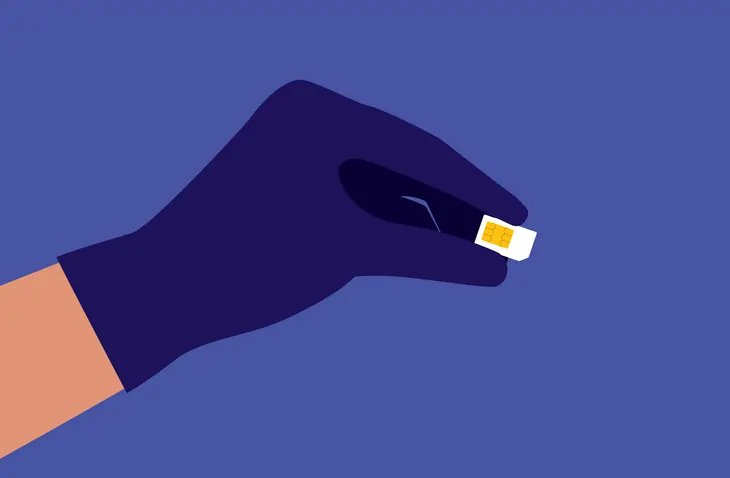Sim Card Theft is On the Rise And It Is Posing Greater Threats Than Ever:
Published by Jessica Weisman-Pitts
Posted on February 9, 2024
5 min readLast updated: January 31, 2026

Published by Jessica Weisman-Pitts
Posted on February 9, 2024
5 min readLast updated: January 31, 2026

The Subscriber Identity Module (SIM) card is a tiny chip in our phones, and it plays a pivotal role in our day-to-day communication. It helps us make calls, send texts, and access the internet using cellular networks. But like any technology, these cards are vulnerable if they aren’t used securely. ...
The Subscriber Identity Module (SIM) card is a tiny chip in our phones, and it plays a pivotal role in our day-to-day communication. It helps us make calls, send texts, and access the internet using cellular networks. But like any technology, these cards are vulnerable if they aren’t used securely. If you’re concerned and want to know more about SIM card misuse and how to save yourself from it, this article will shed light on just that.
When someone who is not authorized to but gains access to your sim card can misuse it for compromising purposes, to say the least. Cases of misuse can appear as follows:
SIM swapping is becoming more and more common every day, and there are several reasons why hackers are hijacking SIMs. Here are some top reasons why SIM swapping is becoming a menace.
For many attackers, it’s all about the money. When they intercept 2FA codes or OTPs sent via SMS, they gain access to bank accounts, cryptocurrency wallets, or other financial services. Using this, they can steal funds from a user’s accounts.
Identity theft is one of the biggest threats regarding sim swapping theft. If attackers get access to your SIM, they also get access to your identity. They can change your accounts’ passwords and take over your social media profiles. Furthermore, they may also use your identity to carry out different illegal activities; it’s not just limited to your number or your contact list.
For inexperienced hackers, SIM swapping is the best choice. This is because it is easier to execute. All they have to do is manipulate employees at the mobile carrier company to transfer the number to a different SIM card.
Most people need to become more familiar with the concept of SIM swapping, and this unawareness makes them susceptible to dangers. Also, these people don’t apply necessary protection measures, making them more prone to dangers. Some mobile carriers lack robust identity verification processes for SIM card transfers, making it easier for attackers to manipulate the system.
Attackers take personal details from various sources like social media. Armed with this info, they can convincingly pose as the legitimate account holder when executing a SIM swap. This also affects crypto enthusiasts, who often use mobile phones for 2FA when accessing their digital wallets; it makes them prime targets for SIM swapping. Once attackers gain control of the victim’s phone number, they can access those valuable assets.
Many online services rely solely on SMS-based 2FA, which can be a weak link vulnerable to SIM swapping. Prioritizing more robust authentication methods could help avoid this risk.
Safeguarding your SIM card is essential in protecting your personal information and securing your digital accounts. Here’s what you can do:
According to Silver Miller Law, “SIM card misuse is a real threat with potentially dangerous consequences, from data theft to financial fraud. You can lower the chances of being targeted by strengthening your SIM card security and watching out for possible attacks.”
Protecting your SIM card isn’t just about securing a piece of technology—it’s about keeping your info safe in a vulnerable world of SIM hacking. There have been many cases where SIM hacking has become quite a big problem.
SIM swapping is a form of identity theft where a hacker transfers a victim's phone number to a new SIM card, allowing them to access personal accounts and sensitive information.
Identity theft occurs when someone unlawfully obtains and uses another person's personal information, typically for financial gain, such as accessing bank accounts or credit cards.
Two-factor authentication (2FA) is a security process that requires two different forms of identification to access an account, enhancing protection against unauthorized access.
Explore more articles in the Technology category











